Is the Government developing a policy for victims of war? A coalition of human rights organisations held a press conference in Kyiv.
On 18 September 2025, the Ukraine Crisis Media Centre hosted a press conference on the topic: “Is the Government Developing a Policy for Victims of War?”, during which representatives of the Coalition of Human Rights Organisations discussed the situation regarding the protection of the rights of victims of the Russian Federation’s armed aggression against Ukraine.
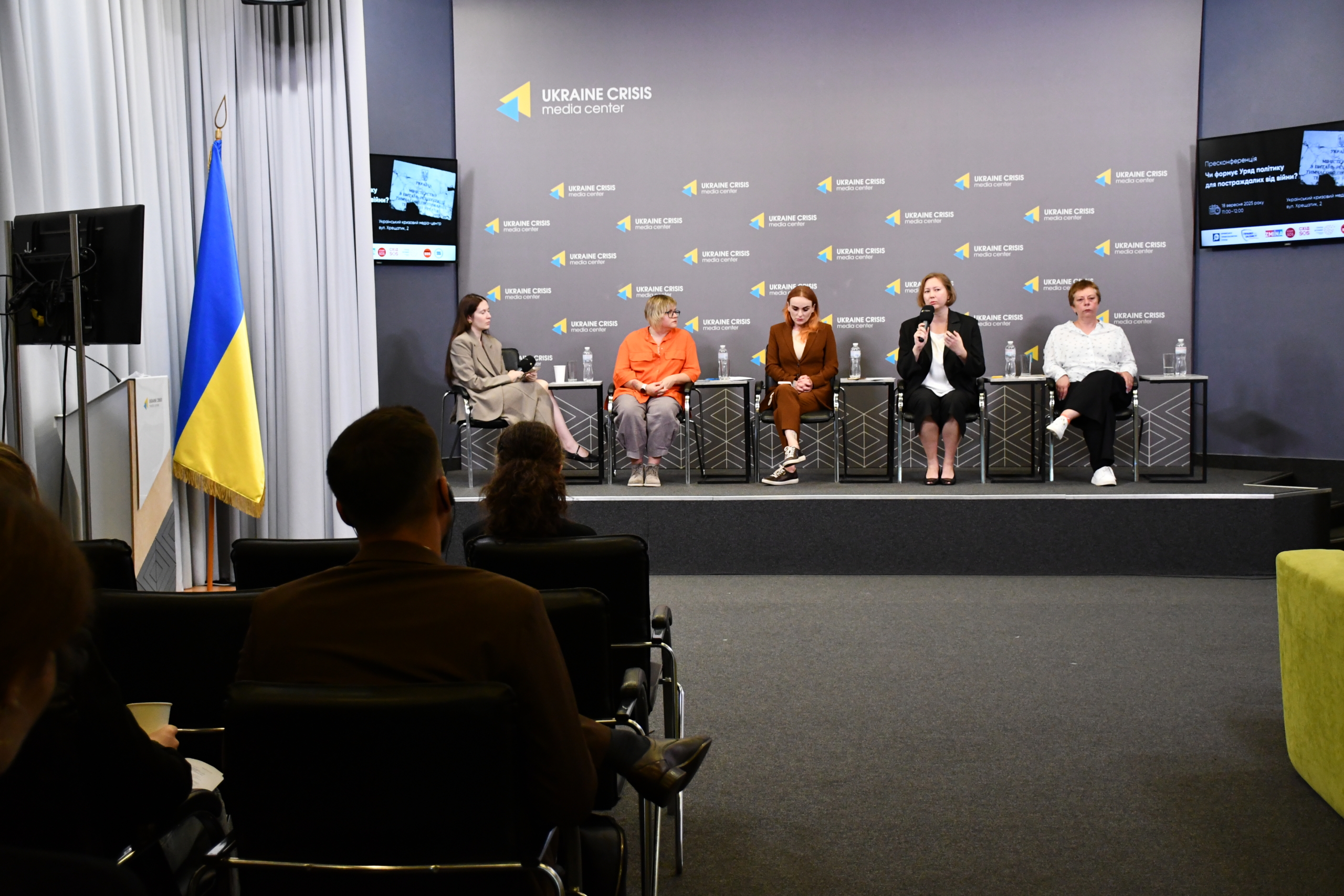
After the dissolution of the Ministry of Reintegration of the Temporarily Occupied Territories at the end of 2024, a number of its functions were left without proper state management. The absence of a responsible body and a comprehensive policy for protecting the rights of victims of war means that millions of people are at risk of being left without adequate support.
The moderator of the event, Mariia Krasnenko, Expert on Internal Displacement, began the press conference by noting that exactly one year ago, on 18 September 2024, representatives of the Coalition expressed their outrage at the decision to liquidate the Ministry of Reintegration. At that time, the participants emphasised that the prospect of dividing powers between different ministries would not contribute to a comprehensive solution to the problems of the affected population. In fact, the loss of certain powers and the failure to implement policies, in particular the internal displacement strategy, is one example of this. Krasnenko stressed that under the new Government, this is a topic for further discussion and one of the key issues of this press conference.
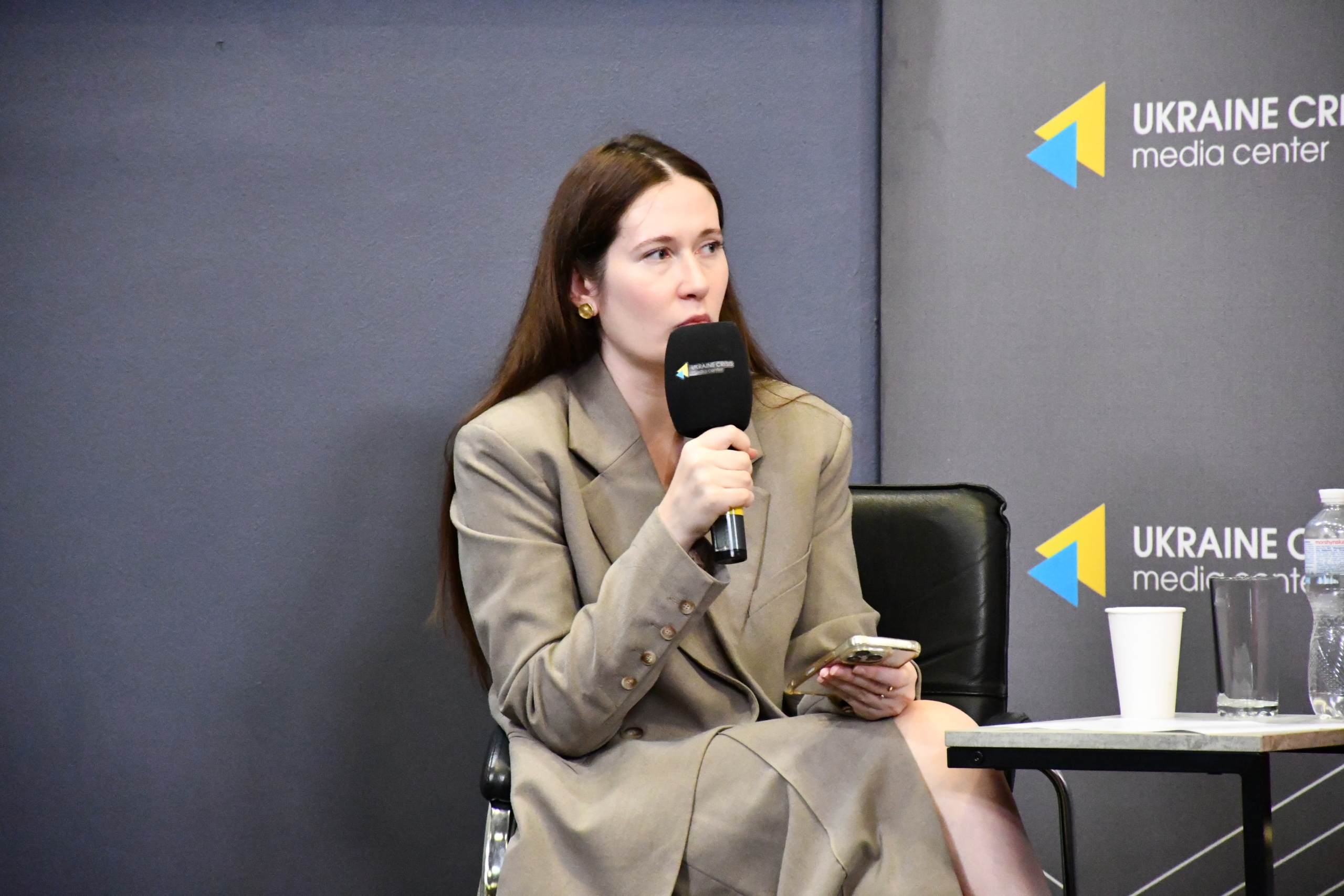 Mariia Krasnenko
Mariia KrasnenkoKseniia Hedz, Advocacy Coordinator of Charitable Fund Right to Protection, noted that the Government Action Plan approved on 10 September mainly defines the list of projects to be implemented and the regulatory and legal acts to be adopted, with a focus on physical reconstruction, forgetting about the restoration of human potential.
“A separate strategic priority of the Government is needed: ‘Protecting the rights of the victims of war’, with clear cascading down to the level of ministries and the definition of coordination mechanisms between them. It is important to ensure full coverage of all victims, avoiding competition between categories, and to ensure the formation of a systematic transitional justice policy. It is also important to introduce a single dashboard for monitoring the implementation of the Plan, which measures not the number of regulatory acts adopted, but the real impact on people’s lives in terms of restoring violated rights, ensuring unhindered access to services, and restoring justice,” emphasised Hedz.
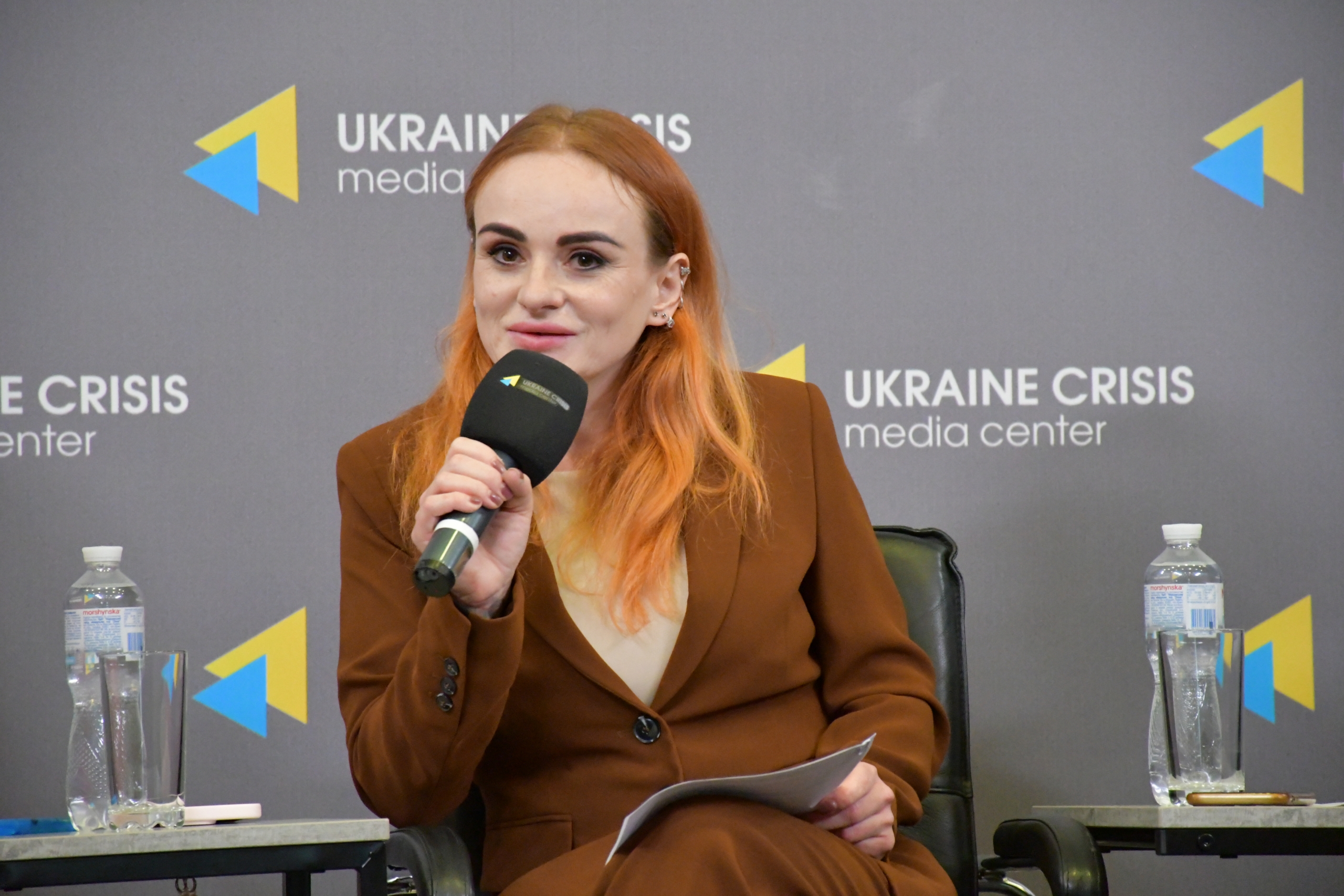 Kseniia Hedz
Kseniia HedzAlena Lunova, Advocacy Director of the Human Rights Centre ZMINA, emphasised that the protection and support of war victims must be a priority for the government, as it concerns millions of people: “Despite the fact that the concept of victims remains undefined in Ukrainian legislation, we are talking about internally displaced persons and those who have left the country; residents of occupied territories, missing persons, children affected by the war, civilian prisoners and others. Damage to life and health, access to medical and educational services must be recorded by the state in accordance with the law, but no such database has been created. Similarly, no law has been drafted or submitted on support for persons whose personal non-property rights have been damaged as a result of armed aggression against Ukraine“.
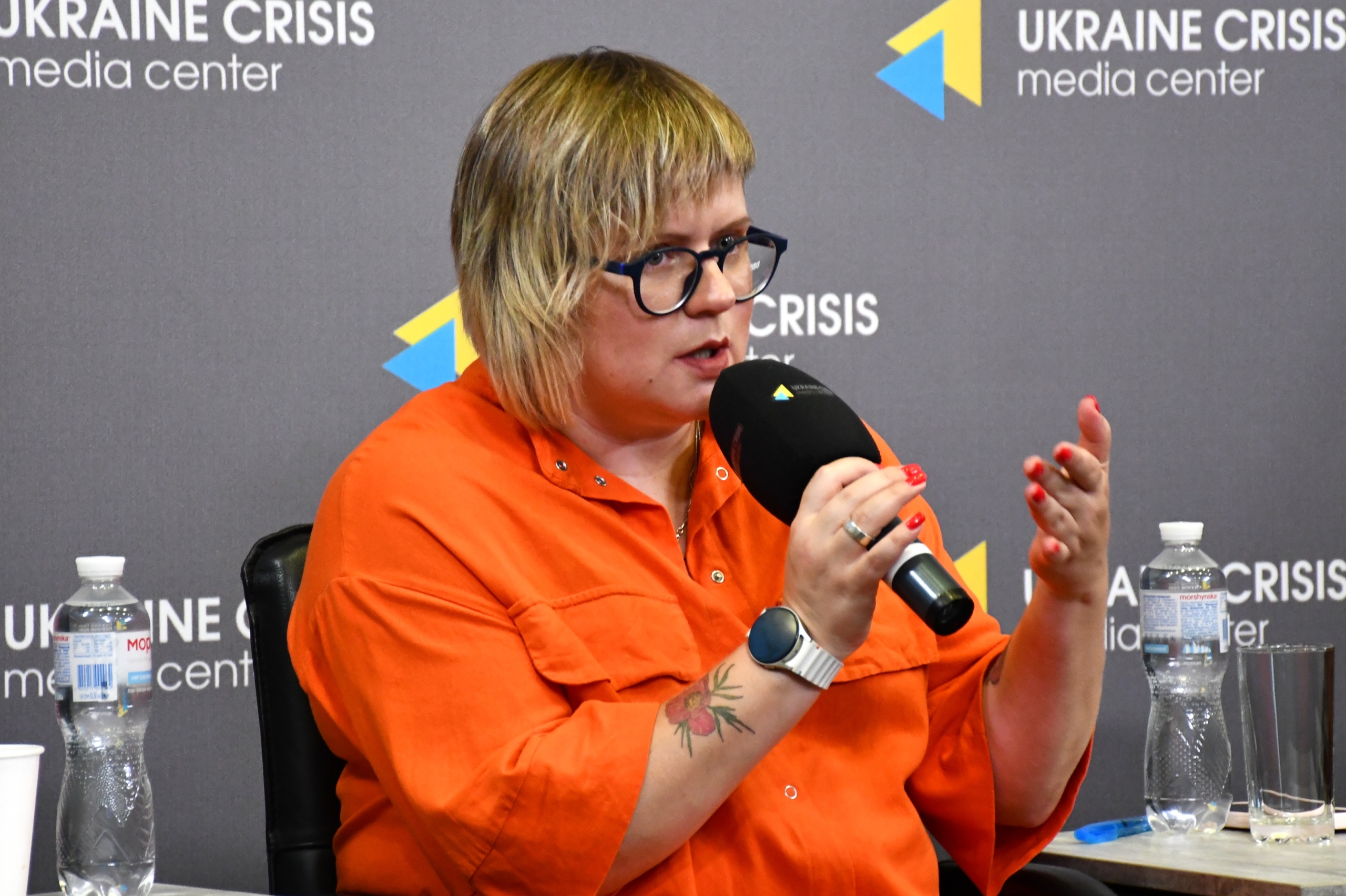 Alena Lunova
Alena LunovaLunova emphasised that policy towards victims of war must be systematic and coordinated, taking into account the experience of supporting victims in previous years.
“We are convinced that overcoming the aftermath of the war and supporting victims should be a priority issue for the Government. Otherwise, the situation will remain unchanged, with some categories of victims receiving support from the state, while others are simply forgotten. For example, those who have suffered as a result of war crimes, in particular torture, are in fact left without support,” noted the Advocacy Director of ZMINA.
Olha Skrypnyk, Head of the Board of the Crimean Human Rights Group, drew attention to the fact that Ukraine currently lacks a body responsible for shaping policy regarding the temporarily occupied territories (TOT) and their residents: “This is clearly reflected in the Government’s Action Plan for 2025-2026. There are no comprehensive measures to support victims of Russian aggression. For example, a category of victims such as civilian prisoners of war is only mentioned in the context of ensuring the activities of the Commission on Establishing the fact of deprivation of personal liberty as a result of armed aggression against Ukraine. However, the Commission does not resolve many of the problems faced by prisoners of war and their families. The current law “On the social and legal protection of persons who have been deprived of their personal freedom as a result of armed aggression against Ukraine” no longer corresponds to the realities of war and the scale of victims of illegal deprivation of liberty. The government must develop and submit amendments to the law, but this is not included in the Government’s Plan“.
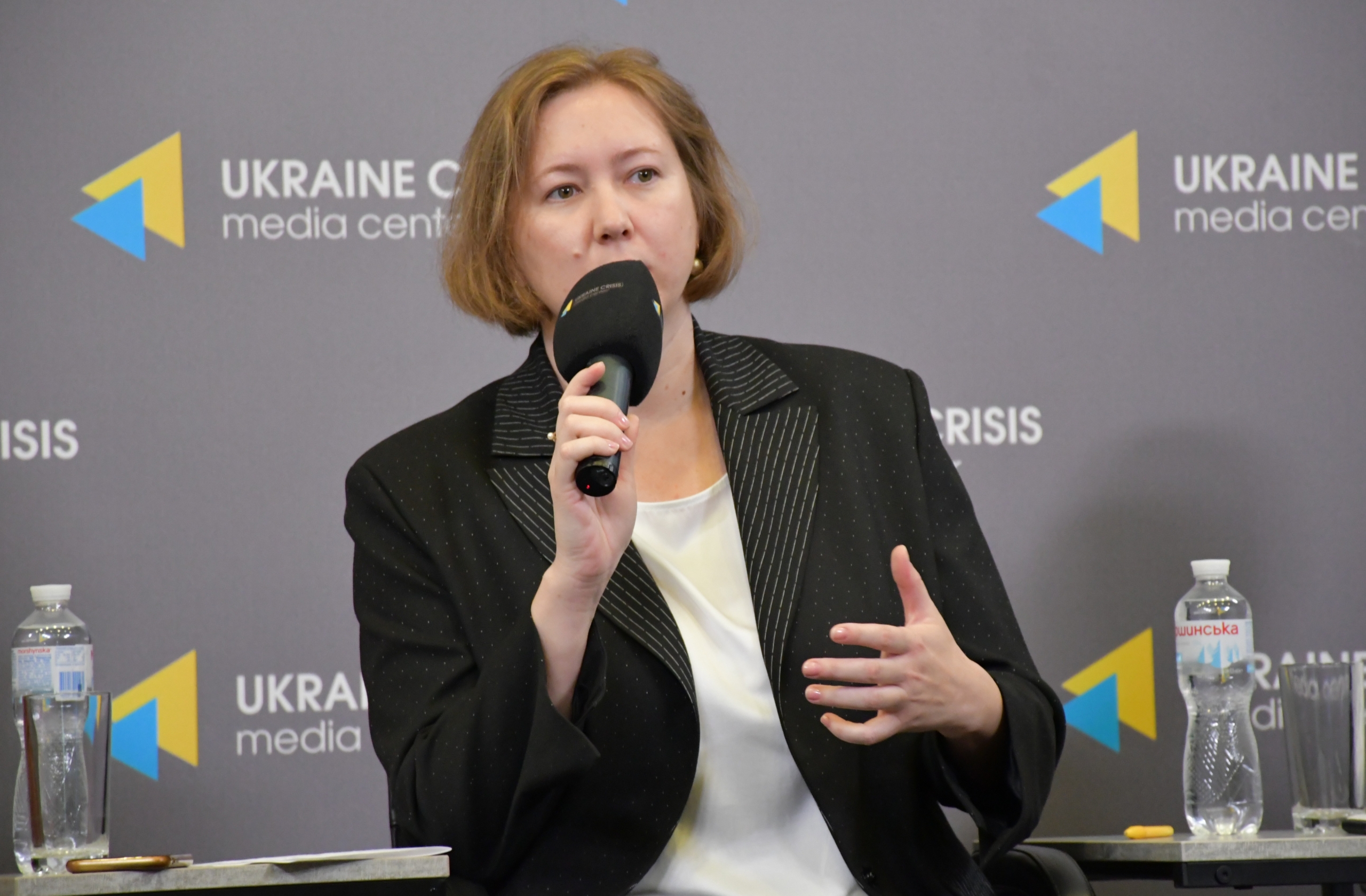 Olha Skrypnyk
Olha SkrypnykIn addition, Skrypnyk adds that the Government is investing enormous resources in the digitalisation of service provision, information and various services: “At the same time, in 11 years of war, the Government has not set itself the task of creating a digitalised ‘single window’ for prisoners and their families to receive the services and state assistance they are guaranteed. They have to apply to various state bodies themselves, often without even knowing which ones to apply to“.
Violeta Artemchuk, Coordinator of the NGO Donbas-SOS, noted that for victims of various categories, one of the important aspects of policy formation and implementation would be the opportunity to receive regular information and, if possible, comprehensive answers to questions regarding such support: “It is important to have clear information about programmes to protect victims and algorithms for action in cases where the situation becomes complicated. Unfortunately, at present, victims are forced to search for information themselves from various sources by contacting different state bodies. In my opinion, this can be demotivating and complicate the resolution of people’s everyday problems“.
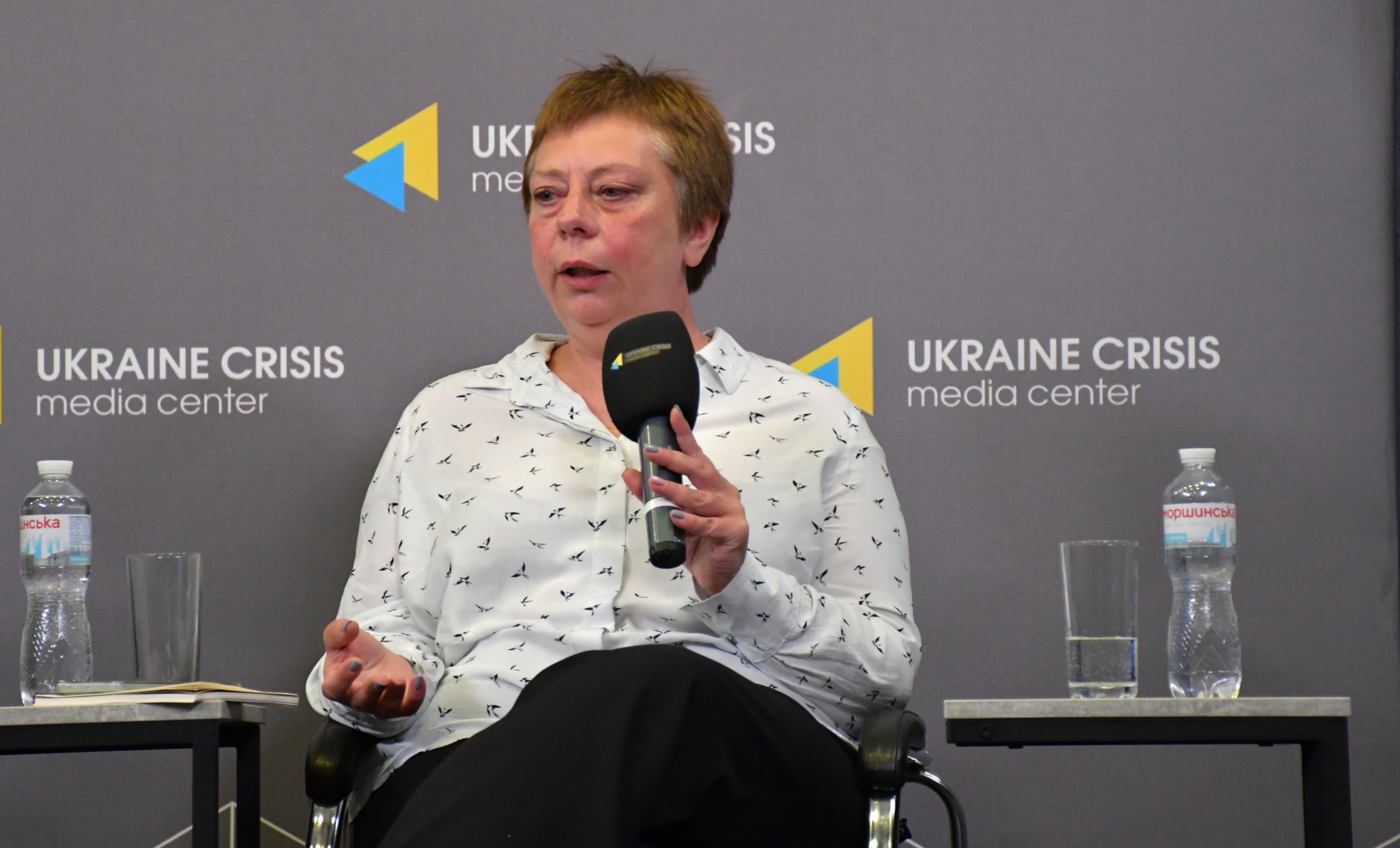 Violeta Artemchuk
Violeta ArtemchukThe full video recording of the event is available here.
Event organisers: Coalition of organisations dealing with the protection of the rights of victims of armed aggression against Ukraine (the Human Rights Centre ZMINA, NGO Donbas SOS, NGO Crimea SOS, Charitable Fund Right to Protection, Charitable Foundation EAST-SOS, NGO Civil Holding GROUP OF INFLUENCE, Charitable Foundation Stabilization Support Services, Crimean Human Rights Group).
If you have found a spelling error, please, notify us by selecting that text and pressing Ctrl+Enter.















